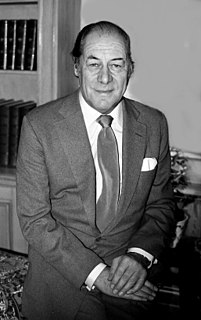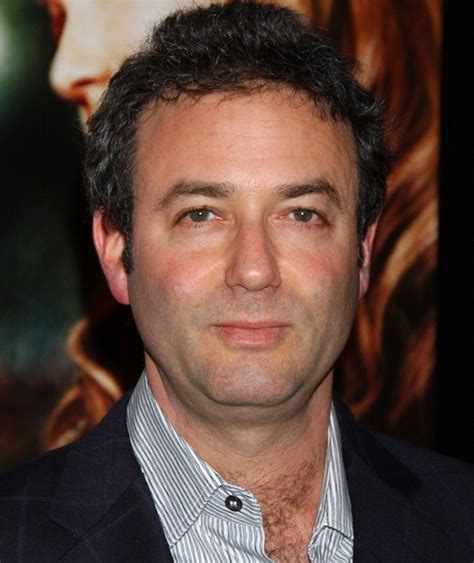A Quote by Roger Ebert
In the vast majority of movies, everything is done for the audience. We are cued to laugh or cry, be frightened or relieved; Hitchcock called the movies a machine for causing emotions in the audience. Bresson (and Ozu) take a different approach. They regard, and ask us to regard along with them, and to arrive at conclusions about their characters that are our own. This is the cinema of empathy.
Related Quotes
I test the movies a lot, and if the audience says they love the movie, we know we're on the right track. And if they tell me they hate it, I try to figure out what I've done wrong. But every time out, the audience wants me to go deeper, they want to know more about the characters, and they don't want these movies to be shallow. So they really urge me to tell them a complicated story, and then when I do so, they're thrilled
It seems to me that dominant cinema seems to require an empathy or a sympathy between the film and the audience which is basically to do with the manipulation of the emotions and it seems to me again -- and this is a very subjective position -- that most cinema seems to trivialise the emotions, sentimentalising or romanticising them.
Acting is bad acting if the actor himself gets emotional in the act of making the audience cry. The object is to make the audience cry, but not cry yourself. The emotion has to be inside the actor, not outside. If you stand there weeping and wailing, all your emotions will go down your shirt and nothing will go out to your audience. Audience control is really about the actor
I like to service the full audience of America, so I try to do things that are just real artistic, like when they don't have the most money, but it's a great piece of work. Then, there are big, fun comedies and big animated movies for kids. I want to do things for my nieces and nephews. Ultimately, we're trying to deliver something entertaining to an audience. As long as it can entertain the audience, and it makes me or my niece and nephew laugh or cry, then I think it's good.
I've done movies that have mostly feminine characters and elements, and I think that both 'Heathers' and 'Truth About Cats and Dogs' are, in their own weird ways - they're different ends of the girl movie spectrum, but they're very much centered around the female characters, and I like those movies, and I like working with good actresses.
I get an opportunity to communicate with the audience about the movie that I've made. I get the chance to bring attention to the film that I've made. I care a lot about the movies that I make. I want them to reach an audience, and I want them to be successful. I promote nearly everything that I do, unless I've got some bad taste in my mouth.
The thing that is incredibly helpful is that we screen the movies and we ask the audience if they like it or not and we ask a lot of questions and do testing on the movies. For comedies, at least, it's very helpful. If they're not laughing and they don't say that they loved it, then I have screwed up.
I have the good fortune of working with two brothers who are very accomplished, incredibly smart, and very capable. So thankfully there is not an issue in that regard where somebody isn't pulling their own weight. We collaborate all the time. We tend to take different paths, but we tend to reach very similar conclusions. It's actually great because it allows us to be much more creative in the process of getting things done.



































